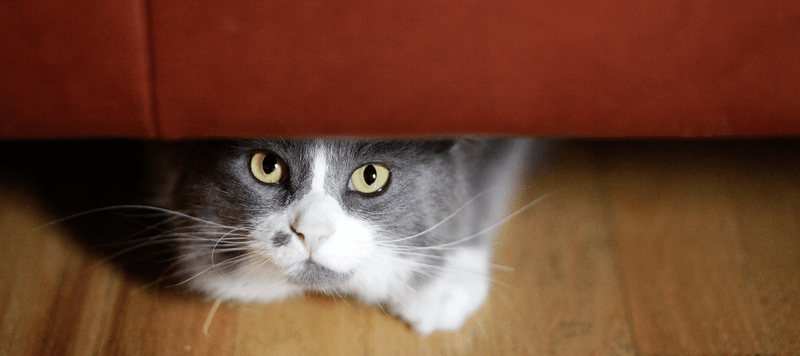Ready to tell your story? You’ll need the help of possessive adjectives to do so!
An adjective is anything that modifies (or changes the meaning of) a noun. The most typical examples are descriptions that express opinions (beautiful, handsome, etc.), colors, shapes, or sizes. However, adjectives can also describe who an object belongs to. These are called les adjectifs possessifs (as you may have guessed from the title), and in French they have a few important differences from the English “my, your, his, her, our, and their.”

Avez-vous vu mon chat? (Have you seen my cat?)
You can see how the word “my” provides a description of the cat, which helps us pick out which one we’re discussing in the same way that adjectives like “gray” or “cute” do. The possessive adjective always comes before the noun which is “owned,” just like in English. Note that when a possessive replaces a noun altogether (yours, his, hers, etc.), it’s a pronoun, not an adjective.
French adjectives change to reflect the gender and number of the noun they’re describing. This means that there are different possessive adjectives for masculine, feminine, and plural nouns.
| English translation | Masculine Singular | Feminine Singular | Plural |
|---|---|---|---|
| my | mon | ma | mes |
| your | ton | ta | tes |
| his/hers/its | son | sa | ses |
| our | notre | notre | nos |
| your (plural/formal) | votre | votre | vos |
| their | leur | leur | leurs |
Nouns that Begin with a Vowel
If the adjective comes before a noun that begins with a vowel or a silent “H” (h muet), use the masculine adjective to avoid an awkward double vowel (of which the French are not fans!). You can imagine that ma amie would come out sounding like some ugly version of “Mommy,” and mon amie is much more fluid for pronunciation purposes.
Voici mon amie Marie. (This is my friend (fem. sing.) Marie.)
Avez-vous utilisé son huile pour cuire les légumes? (Did you use his oil (fem. sing.) to cook the vegetables?)
Choosing the Right Adjective
Note that for once, French is not the only language that changes its possessive adjectives to match the noun.
I stole her ball.
However, this is actually a big difference from English, in which the possessive adjective matches the owner, not the possessed object. In French, the adjective changes to match the object in gender and number.
J’ai rencontré sa fille, mais pas son fils. (I have met his daughter, but not his son.)
Elle a arrosé sa plante (fem. sing.). (She watered his/her plant.)
Body Parts
Notice that French does not use the possessive adjective to talk about body parts that are “owned” by someone; they are just referred to with the definite article, or as “the __.” The ownership is instead expressed by the reflexive pronoun (me, te, se, etc.).
Je me lave le pied. I am washing my foot.
Elle se brosse les dents. She brushes her teeth.
To Each Their Own
Since the adjective must match the object, each object gets its own adjective!
Sa grand-mère et son grand-père viennent nous rendre visite. (His grandmother and grandfather are coming to visit.)
Ready to use your newfound knowledge to improve votre français? Sign up for Lingvist’s French course to start practicing the use of these adjectifs possessifs in context!


